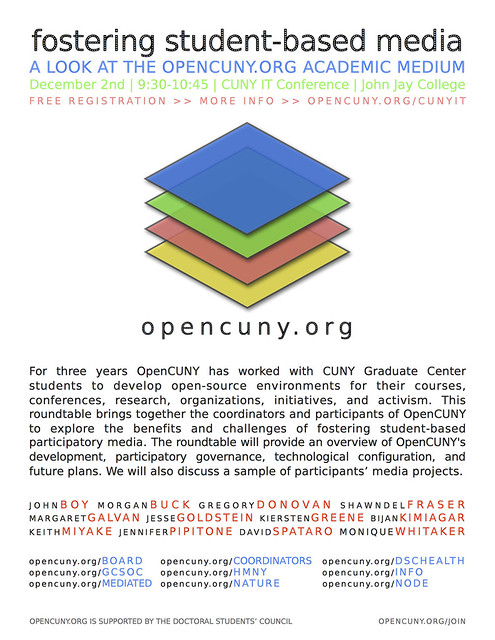Understanding the Architectures of SOPA & PIPA
Two controversial pieces of legislation that would significantly alter the architecture of the internet are currently being debated in congress: the Stop Online Privacy Act (SOPA) in the U.S. House of Representatives, and the Protect IP Act (PIPA) in the U.S. Senate. The following is a round up of some sources I’ve found helpful in trying to understand the effect that these pieces of legislation would have on the informational architecture of the internet.
The first comes from the Electronic Frontier Foundation who recently published an open letter to congress from 83 prominent internet engineers and architects. The letter is short and worth a full read, but here is the key passage (emphasis mine):
If enacted, either of these bills will create an environment of tremendous fear and uncertainty for technological innovation, and seriously harm the credibility of the United States in its role as a steward of key Internet infrastructure. Regardless of recent amendments to SOPA, both bills will risk fragmenting the Internet’s global domain name system (DNS) and have other capricious technical consequences. In exchange for this, such legislation would engender censorship that will simultaneously be circumvented by deliberate infringers while hampering innocent parties’ right and ability to communicate and express themselves online.
The second is Ars Technica’s summary of a Consumer Electronics Show panel that debated both SOPA and the recently introduced OPEN Act, an alternative piece of legislation supported by notable critics of SOPA (emphasis mine):
[Ryan] Clough [legislative counsel for the Office of Rep. Zoe Lofgren (D-CA)] said SOPA and Protect-IP create an architecture for Internet censorship. “Once we create this system, there is no way it will be contained to copyright infringement,” he said. Further, he argued “this bill will make it easier for China to keep imposing the types of controls on the Internet that it does and to keep resisting international pressure against it.”
The third is a piece Julian Sanchez wrote for the Cato Institute. Sanchez discusses the link between information architecture and free speech in order to argue that SOPA and PIPA would constitute a new legal and technological architecture of censorship (emphasis mine):
SOPA is a 70 page statute establishing a detailed legal process by which the Justice Department can initiate blocking of supposed pirate domains by ISPs and search engines, and by which private parties can seek orders requiring payment processors and ad networks to sever tie.
… If SOPA passes, thousands of commercial ISPs, colleges, small businesses, nonprofits, and other entities that maintain domain servers are going to have to reconfigure their networks, potentially at substantial cost, in order to easily comply with the new law.
… These twin architectures will obliterate major institutional barriers to Internet censorship generally, not just censorship for antipiracy purposes.
The fourth is the Obama Administration’s response to SOPA/PIPA, written by Victoria Espinel (IP Enforcement Coordinator at Office of Management and Budget), Aneesh Chopra (U.S. Chief Technology Officer and Assistant to the President and Associate Director for Technology at the Office of Science and Technology Policy), and Howard Schmidt (Special Assistant to the President and Cybersecurity Coordinator for National Security Staff) (emphasis theirs):
We must avoid creating new cybersecurity risks or disrupting the underlying architecture of the Internet. Proposed laws must not tamper with the technical architecture of the Internet through manipulation of the Domain Name System (DNS), a foundation of Internet security. Our analysis of the DNS filtering provisions in some proposed legislation suggests that they pose a real risk to cybersecurity and yet leave contraband goods and services accessible online. We must avoid legislation that drives users to dangerous, unreliable DNS servers and puts next-generation security policies, such as the deployment of DNSSEC, at risk.
And finally – A short video, from a group called Fight for the Future, illustrating what PIPA entails and the chilling effect it would have on the internet:


